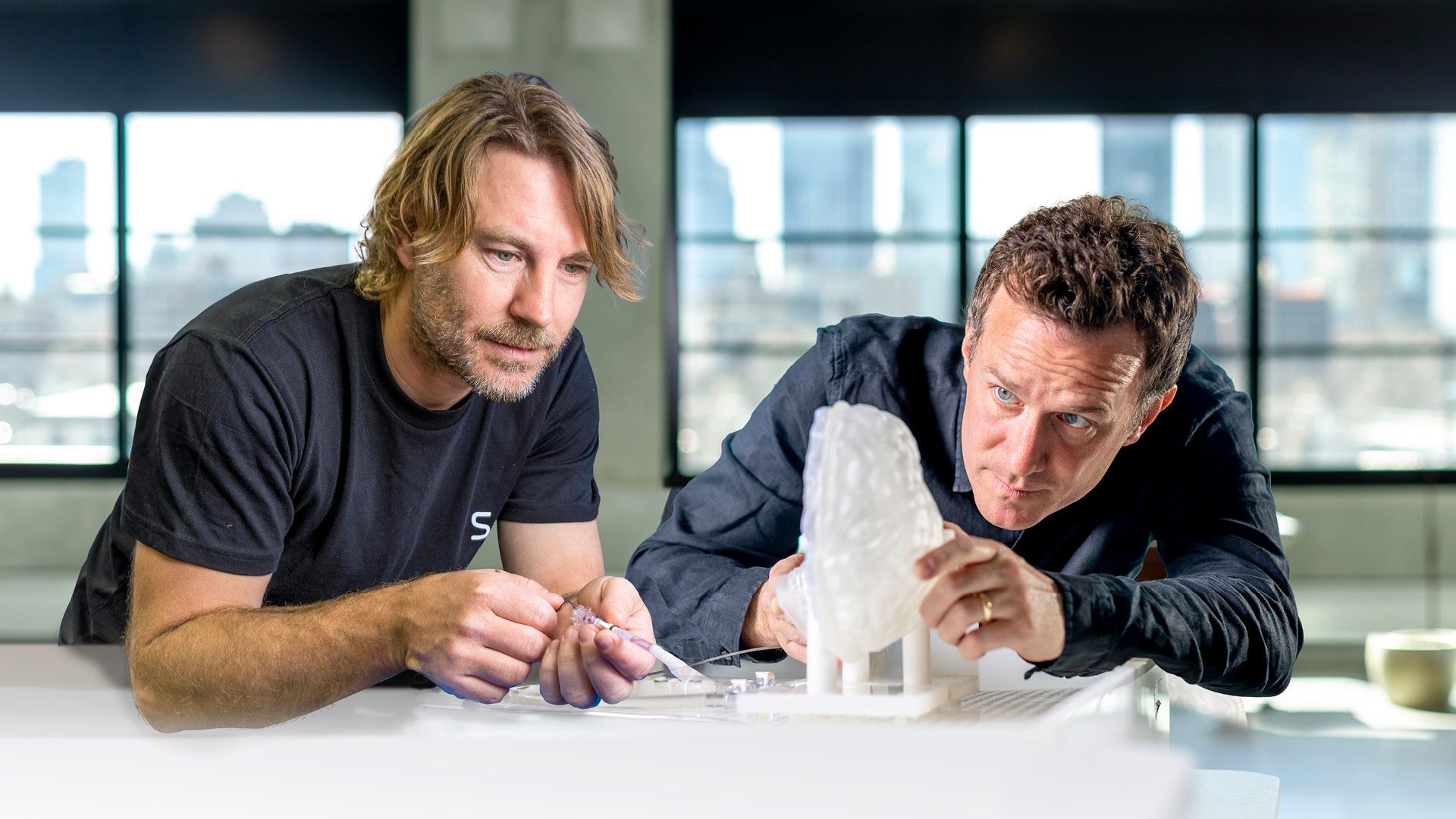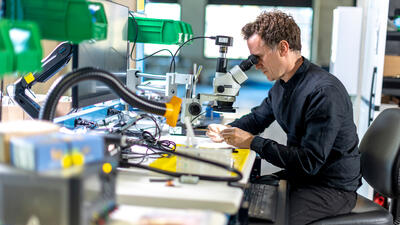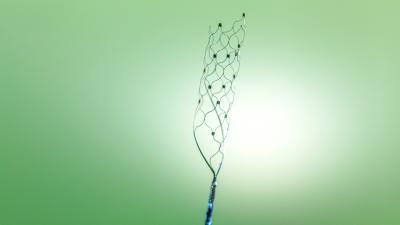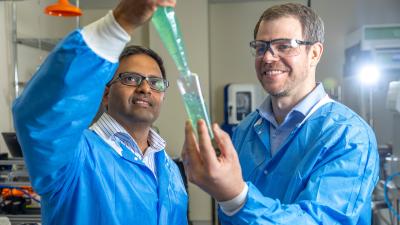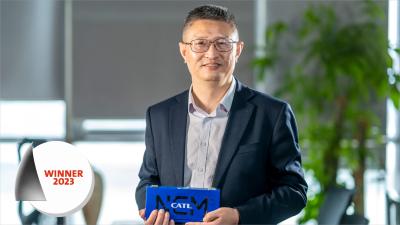Thomas Oxley and Nicholas Opie
A brain implant for two-way communication with external devices
Finalists for the European Inventor Award 2023
Neurological conditions impact millions worldwide and can limit a patient's speech and mobility and take away their independence. Whether through disease or injury, neurological conditions often prevent the spinal cord from transmitting signals between the brain and the rest of the body. However, the brain itself may still be sending signals - the Stentrode can pick up, analyse and transmit these signals to external devices like computers, phones or exoskeletons. The idea came to Oxley and Opie in 2015 when they saw the potential to incorporate electronics into neurology after a stent retriever successfully removed a blood clot from the brain.
The Stentrode consists of miniature scaffolds and electrodes inserted via the jugular vein into a blood vessel close to the areas of the brain that control sensory and motor activity. Insertion via the jugular enables the surgeon to reach the brain region without having to open a patient's skull and perform invasive brain surgery. The device is the size of a paperclip and is designed to become incorporated into the wall of the blood vessel like a tattoo.
According to Oxley, the inventors had two eureka moments: “The first was the time that we were actually able to push the device all the way through a catheter and open up in the brain. And then the second was the moment at which we proved definitively that we were recording actual brain signal." The implant has been successfully implanted in four people in Australia and three in the USA. Its potential applications include preventing epileptic seizures or controlling tremors, treating Alzheimer's and Parkinson's disease, depression, high blood pressure, addiction and obsessive-compulsive disorder.
Diverse skills, common goal
Thomas Oxley and Nicholas Opie founded Synchron, a medical device company focused on developing neural interface technology. They both studied at the University of Melbourne, where they met and began collaborating. Oxley is a vascular and interventional neurologist and brain-computer interfaces expert. Opie is a professor and head of the Vascular Bionics Laboratory at the University of Melbourne, with a background in electrical and electronics engineering and biomedical engineering. Opie's research focuses on developing advanced neural prosthetics that can restore function in individuals with spinal cord injuries.
Their working partnership was a natural step, “I first met Tom in about 2011 and it was immediately clear that we had complementary skills and an aligned direction. We both wanted to create medical devices that would be able to help those that were unable to help themselves, and dreamed of helping people with paralysis,” explains Opie.
Media gallery
Patent numbers:
EP3364915 B1
Press materials
Access materials for journalists
Press release: Brain-computer interface to control digital devices using thoughts: Australian researchers selected as finalists for the European Inventor Award 2023 Press photos/video (for MXF format videos, please contact press@epo.org)
Contact
European Inventor Award and Young Inventors Prize queries:
european-inventor@epo.org Subscribe to the European Inventor Award newsletterMedia-related queries:
Contact our Press team#InventorAward #YoungInventors
